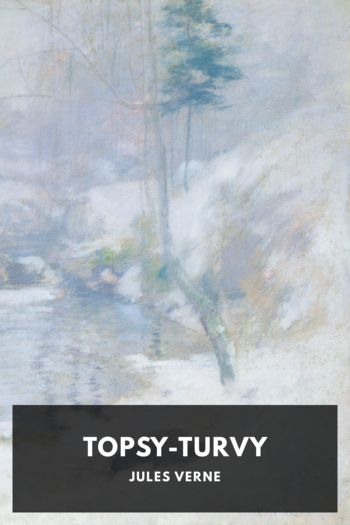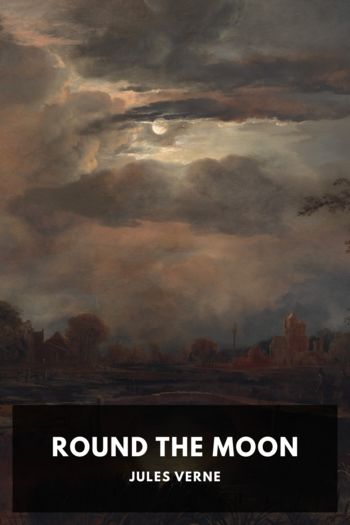Topsy-Turvy by Jules Verne (best book recommendations .txt) 📕

- Author: Jules Verne
Book online «Topsy-Turvy by Jules Verne (best book recommendations .txt) 📕». Author Jules Verne
“Honor to President Barbicane! His associates and himself will not only annex a new province to our American continent, and thereby enlarge the already vast possessions of the United States, but they will make the whole world more productive and inhabitable. It will be possible then to put seed in the ground as soon as the crop had grown up and been taken out; there would be no more time lost during the Winter. And the coal mines also would make the country richer than the value of its entire present realty. Barbicane & Co. will change the whole world and put it in better condition. Thanks, then, to the people who have done this greatest of benefits to humanity.”
In Which Appears the French Gentleman to Whom We Referred at the Beginning of This Truthful StorySuch, then, were to be the profits due to the changes which were to be wrought by President Barbicane. The earth would continue to revolve and the course of the year would not be much altered. As the changes would concern the whole world it was natural that they became of interest to all. In regard to the new axis which was going to be used that was the secret which neither President Barbicane nor Capt. Nicholl nor J. T. Maston seemed to be willing to give to the public. Were they to reveal it before, or would none know of it until after the change had taken place? A degree of uncertainty began to fill the American mind. Criticisms very natural and to be expected were made in the papers. By what mechanical means was this project to be carried out which would bring about this change? It would necessarily demand a terrible power. One of the greatest papers at that time commented in the following article: “If the earth was not turning on its axis, perhaps a very feeble shock would be sufficient to give it such a movement as might be chosen, but otherwise it would be very difficult if not impossible to deviate it a fixed amount.” Nothing seemed more correct after having discussed the effort which the engineers of the N.P.P.A. were to make. Discussion took on the interesting turn as to whether this result would be reached insensibly or suddenly. And if the latter, would not terrible accidents happen at the moment when the change took place? This troubled scientific people as well as ignorant people. It was not agreeable to know that a blow was to be struck and not know precisely what the after effects were to be.
It seemed as if the promoters of this undertaking had not fully considered the consequences—that they would be so very dangerous to the earth, and that it would not do as much good as first thought. The European delegates, more than ever angry at the loss which they had suffered, resolved to make the most of this question and to excite the public as much as possible upon it so as to turn feeling against the members of the Gun Club.
It will not be forgotten that France had absolutely nothing to do with these delegates, as it had no intentions of buying the Arctic region. However, a Frenchman had come to Baltimore, and for his own personal benefit and information had watched with great interest the proceedings of the Gun Club. He was an engineer, not more than thirty-five years old. He had been first in the polytechnic school, and came out of it with the highest honors. He was without doubt as skilful a calculator as Mr. J. T. Maston. This engineer was a very intelligent young man, very original, always pleasant, and with most amiable manners. He always spoke very frankly and used plain language, no matter whether he was speaking in earnest or in fun. He even went so far as to use slangy expressions when they served his purpose. He could sit for hours at his table and figure and calculate, making his figures and calculations as fast as he could write with a pen. His greatest pleasure, next to these difficult mathematical efforts, was in “whist,” which he played apparently very indifferently, not forgetting to figure out all his chances. His name was Alcide Pierdeux, but he generally signed it,





Comments (0)